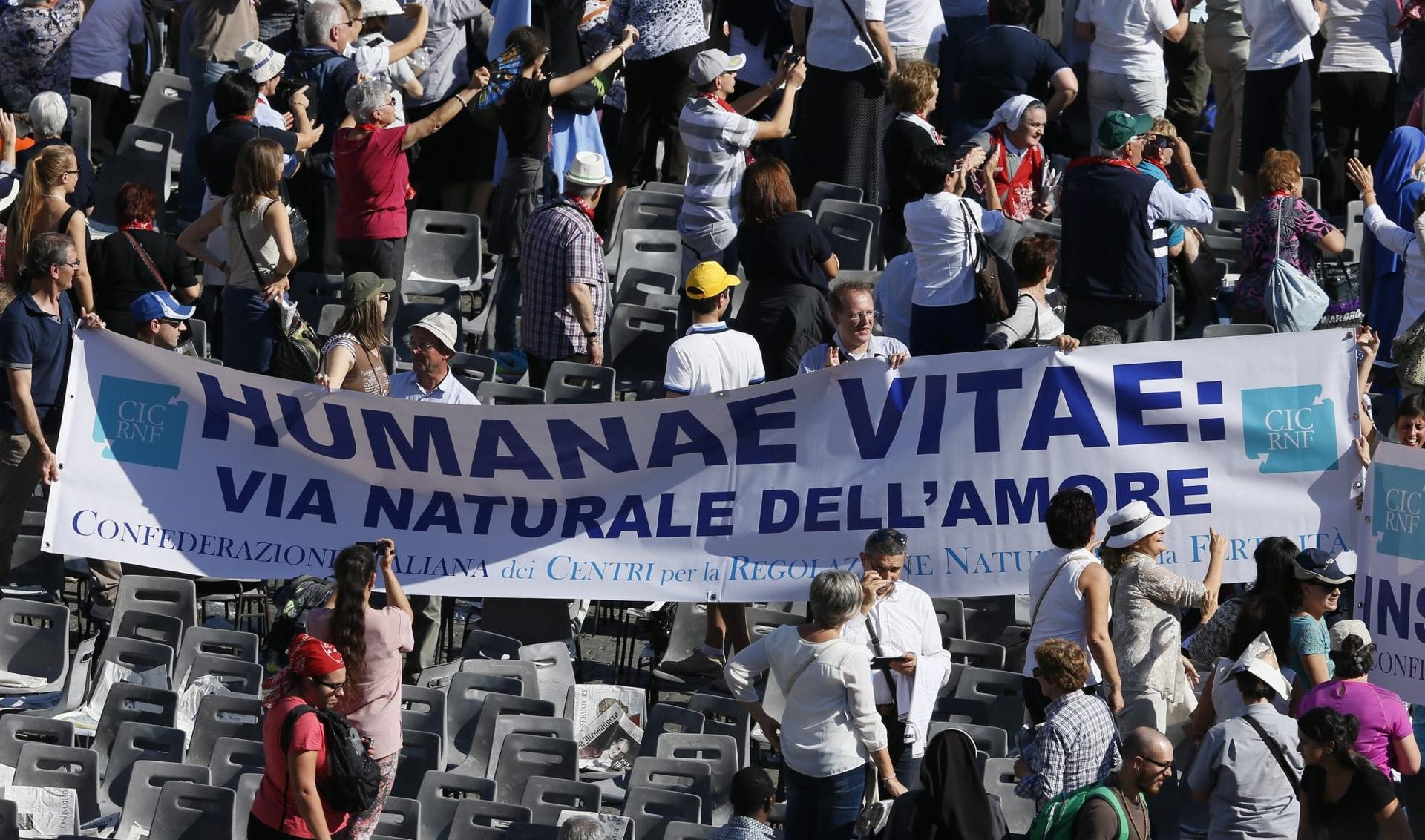 ROME – Tuesday marked the 49th anniversary of Humanae Vitae, the encyclical on birth control by Pope Paul VI that generated so much controversy, he never wrote another one in the remaining ten years of his pontificate.
ROME – Tuesday marked the 49th anniversary of Humanae Vitae, the encyclical on birth control by Pope Paul VI that generated so much controversy, he never wrote another one in the remaining ten years of his pontificate.
In recent months there have been rumors, mostly circulated by (conservative) blogs spinning a piece by a highly-respected Italian journalist, about a “secret” commission created by Pope Francis to reinterpret that document in light of the pontiff’s apostolic exhortation Amoris Laetitia.
Humane Vitae was the first papal document of its kind to speak about responsible parenthood, which infuriated several people. It also confirmed the Church’s decision not to allow artificial contraception, which was flat-out opposed in many quarters.
Overnight, dissent became a front-burner issue. In their pastoral letter Human Life in Our Day, issued four months after the encyclical, the United Sates’ bishops conference even laid out norms for licit dissent.
Back to the present. According to the rumors, a commission to review the document was allegedly put together under the cover of darkness by Pope Francis and Italian Archbishop Vincenzo Paglia, who last year was appointed by the pontiff to head the Vatican’s Academy for Life and to serve as Grand Chancellor of the John Paul II Pontifical Institute.
Paglia has denied that any such commission exists. Speaking recently with Argentine journalist Andrés Beltramo Álvarez, Paglia said, “There’s no commission, that’s all been made up.”
This interview was published online on July 13 in the Spanish Alfa y Omega. Paglia himself provided a translation into English via Twitter.
Yet on Tuesday, Vatican Radio published a separate interview with Father Gilfredo Marengo, a professor of theological anthropology at the St. John Paul II institute in Rome. Responding to questions, he said he leads a “research group” on Humane Vitae.
That raised some eyebrows, since Marengo is precisely the man the rumors had identified as leader of the alleged “reinterpreting-the-document” commission. So, I picked up the phone, called the John Paul II Pontifical Institute, and asked to speak with him.
He wasn’t there, but the person on the other side of the line happily gave me his email. I wrote, and not ten minutes later I had a response.
Marengo told me that, together with colleagues, he’s part of a research group on Humane Vitae, but it “has nothing to do with ‘reforming the encyclical’.”
Instead, the group is going through archives and documents that have been preserved from that era to reconstruct the writing process behind the encyclical.
“This is a historical-critical investigation work. Nothing else,” he said.
Emphasizing what he told Vatican Radio, Marengo said he sees “no need nor value in reforming what Humane Vitae teaches: At the beginning of the interview, I recognize its ‘prophetic’ value.”
For what it’s worth, Francis himself has given no hint of intending to change the Church’s teaching on contraception. On the contrary, he’s praised Humane Vitae several times. In a November 2014 interview with an Italian newspaper, he said that his predecessor’s “genius was prophetic.”
“He had the courage to stand against the majority, to defend moral discipline, to exercise a ‘brake’ on the culture, to oppose [both] present and future neo-Malthusianism,” he said.
In 2015, during his visit to the Philippines, while talking to families, he departed from his prepared remarks to once again praise his predecessor, whom he beatified in 2014.
“He had the strength to defend openness to life at a time when many people were worried about population growth,” Francis said. He also asked priests hearing confessions to be “very generous” in individual cases, meaning that they should show compassion to couples using birth control, but he left no doubt that the broad Catholic rule isn’t about to change.
As a footnote, he’s also promoted the responsible parenthood angle of the encyclical, saying that being a “good Catholic” does not mean “breeding like rabbits.”
Based on the Marengo interview with Vatican Radio, it would have been easy enough to whip up a piece claiming it proves Paglia was lying, that there really is a secret cabal planning to gut Humanae Vitae, slap on a click-bait headline, and presto: A new Internet sensation is born.
As it turns out, though, picking up the phone to get the actual facts of the situation was just as easy.
(In fact, even making a phone call in this case arguably was overkill, because Andrea Gagliarducci of the Catholic News Agency/EWTN News had already done the same thing back in mid-June, during another spike in the “secret commission” rumors. Gagliarducci contacted Marengo and got him to explain what was going on, just as I did this week.)
Perhaps the moral of the story is this: If conspiracy theorists would devote the same energy to real reporting as they do to mental gymnastics and connect-the-dots exercises, they might actually know what’s going on once in a while.












